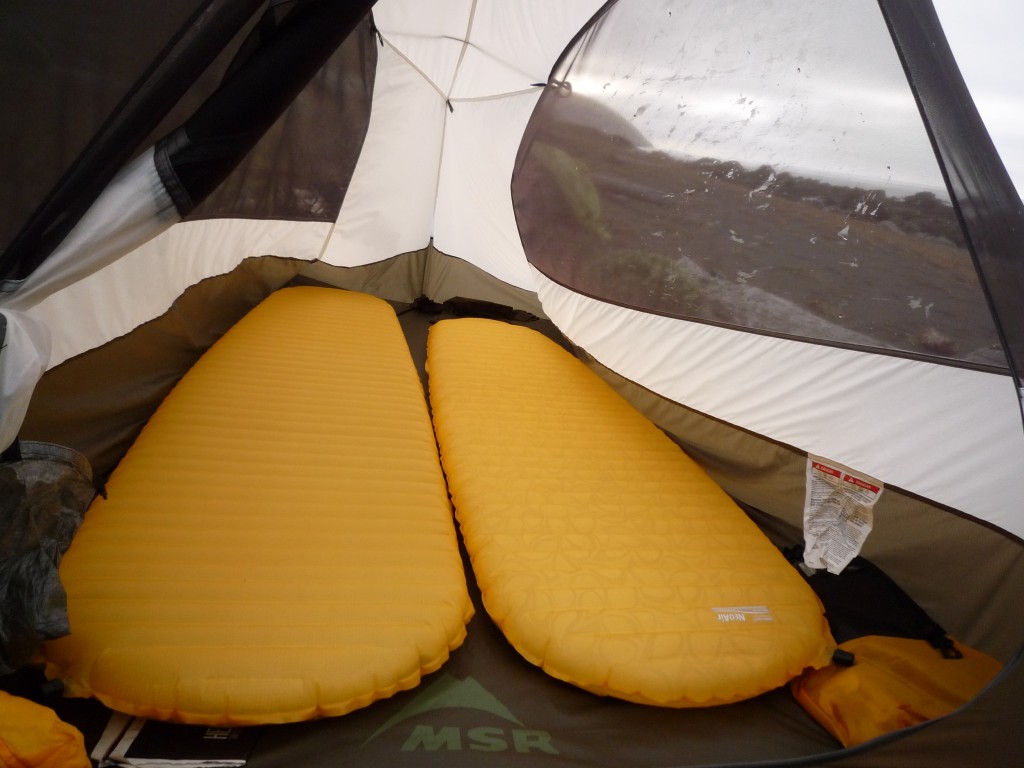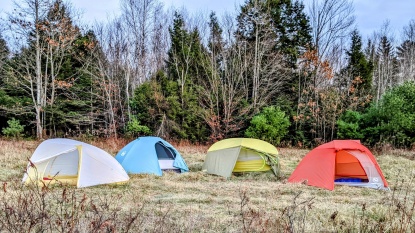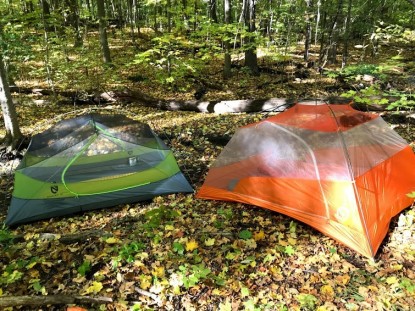MSR Nook Review
Our Verdict
Our Analysis and Test Results
Hands-On Review
Livability
The MSR Nook makes the traditional Y-shaped pole design more comfortable. It uses a unique design that has two cross poles that run perpendicular to the primary pole and serve to increase interior volume. The Nook has a 38-inch peak height, which is about average for the 24 tents tested, but the beauty of the second pole is it maintains that peak height farther into the tent, creating more space for sitting upright. After the Hilleberg Anjan, this is the second most comfortable single entrance tent we've tested.
Weather Resistance
We believe the Nook is MSR's strongest three-season tent. Unlike the Hubba Hubba, Carbon Reflex 2, and Hoop, the Nook has a smaller and more aerodynamic design and many more guy points that help to support the tent in high winds. It's the company's only tent that we feel secure in during serious three-season storms. The waterproof floor extends up the walls enough to stop splashback and solid nylon panels extend four inches up from there to block additional splashback or spindrift, and make the tent warmer. The rest of the walls are mesh, which, when combined with two side vents, help to combat condensation better than the average tent tested here.
Weight and Packed Size
The Nook weighs 52 ounces or 3 lb. 8 oz. It's on the heavier side for serious backpacking but is light enough for many shorter duration trips.
Limitations
The Nook walks the thin and sometimes awkward line between a backpacking tent and a car camping tent. Its features are well designed, but it suffers from “category drawback.” That is, this type of tent excels at neither car camping nor backpacking. In general our testers prefer to use a much lighter and smaller tent for backpacking and a much larger and heavier tent for car camping. The Nook's vestibule is a tiny six-square-foot pointy bit that's much smaller than the average tent we've tested. The tent performs poorly at car camping or basecamping; a slightly heavier tent offers more comfort. And for backpacking, other tents are more spacious for their weight. Nonetheless, the tent is very good compared to the global market and does reasonably well in our ratings, which pit the best tents on the market against each other.
Adaptability
The Nook can be fast-pitched with the fly, poles, and an optional footprint. But, for reasons stated in our Backpacking Tent Buying Advice, we don't recommend fast-pitching. The tent is not adaptable to environmental variation. It much be pitched in the same way every time regardless of the weather or the campsite.
Best Application
Semi-spacious backpacking.
Value
At $400 the Nook ranks among the more expensive tents we've tested. Check out our Price versus Value Chart to see how it compares to other tents performance and price.






